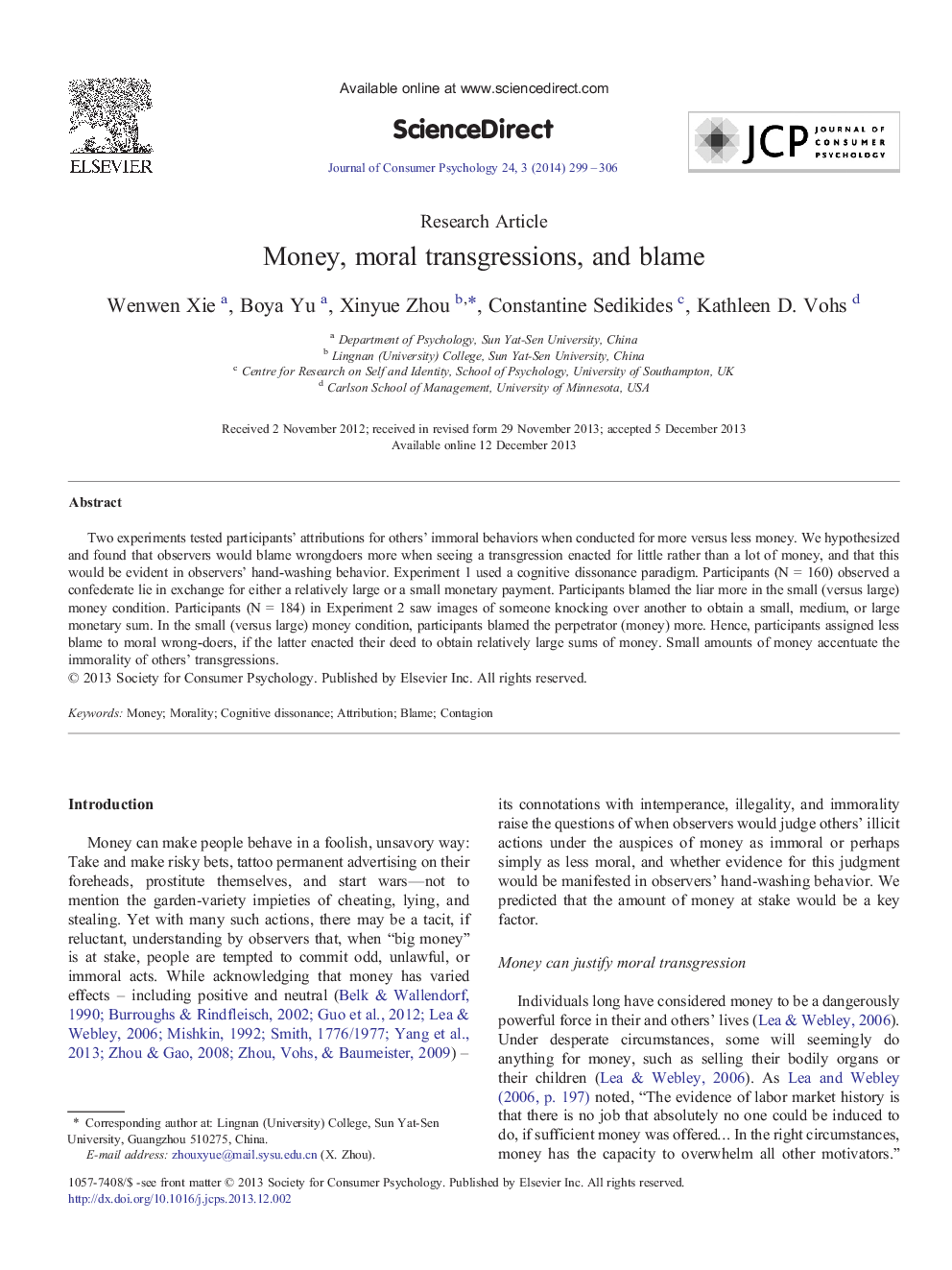| کد مقاله | کد نشریه | سال انتشار | مقاله انگلیسی | نسخه تمام متن |
|---|---|---|---|---|
| 882241 | 911926 | 2014 | 8 صفحه PDF | دانلود رایگان |
Two experiments tested participants' attributions for others' immoral behaviors when conducted for more versus less money. We hypothesized and found that observers would blame wrongdoers more when seeing a transgression enacted for little rather than a lot of money, and that this would be evident in observers' hand-washing behavior. Experiment 1 used a cognitive dissonance paradigm. Participants (N = 160) observed a confederate lie in exchange for either a relatively large or a small monetary payment. Participants blamed the liar more in the small (versus large) money condition. Participants (N = 184) in Experiment 2 saw images of someone knocking over another to obtain a small, medium, or large monetary sum. In the small (versus large) money condition, participants blamed the perpetrator (money) more. Hence, participants assigned less blame to moral wrong-doers, if the latter enacted their deed to obtain relatively large sums of money. Small amounts of money accentuate the immorality of others' transgressions.
Journal: Journal of Consumer Psychology - Volume 24, Issue 3, July 2014, Pages 299–306
